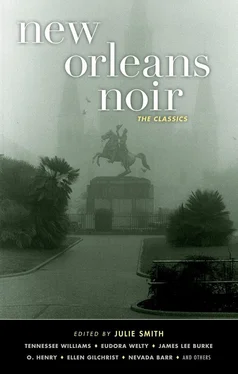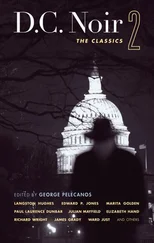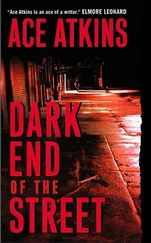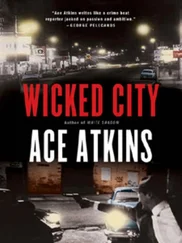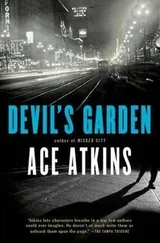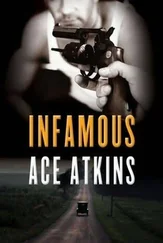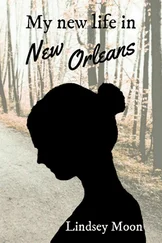Ace Atkins - New Orleans Noir - The Classics
Здесь есть возможность читать онлайн «Ace Atkins - New Orleans Noir - The Classics» весь текст электронной книги совершенно бесплатно (целиком полную версию без сокращений). В некоторых случаях можно слушать аудио, скачать через торрент в формате fb2 и присутствует краткое содержание. Город: New York, Год выпуска: 2016, ISBN: 2016, Издательство: Akashic Books, Жанр: Детектив, на английском языке. Описание произведения, (предисловие) а так же отзывы посетителей доступны на портале библиотеки ЛибКат.
- Название:New Orleans Noir: The Classics
- Автор:
- Издательство:Akashic Books
- Жанр:
- Год:2016
- Город:New York
- ISBN:978-1-61775-384-8
- Рейтинг книги:3 / 5. Голосов: 1
-
Избранное:Добавить в избранное
- Отзывы:
-
Ваша оценка:
- 60
- 1
- 2
- 3
- 4
- 5
New Orleans Noir: The Classics: краткое содержание, описание и аннотация
Предлагаем к чтению аннотацию, описание, краткое содержание или предисловие (зависит от того, что написал сам автор книги «New Orleans Noir: The Classics»). Если вы не нашли необходимую информацию о книге — напишите в комментариях, мы постараемся отыскать её.
takes a literary tour through some of the darkest writing in New Orleans history.
New Orleans Noir: The Classics — читать онлайн бесплатно полную книгу (весь текст) целиком
Ниже представлен текст книги, разбитый по страницам. Система сохранения места последней прочитанной страницы, позволяет с удобством читать онлайн бесплатно книгу «New Orleans Noir: The Classics», без необходимости каждый раз заново искать на чём Вы остановились. Поставьте закладку, и сможете в любой момент перейти на страницу, на которой закончили чтение.
Интервал:
Закладка:
But he growls again, turning his face toward her, and she sees that his teeth are bared and his threat is serious. “Spats,” she says firmly, but she backs away. His eyes glaze over with something deep and vicious, and she knows that he no longer hears her. She drops the bowl. The sound of the bowl hitting the linoleum and the sight of his food scattered before him brings Spats back to himself. He falls to eating off the floor. Gretta lifts her head to watch him, then returns to her hurried eating.
Lydia leans against the stove. Her legs are weak and her heart beats absurdly in her ears. In the midst of all this weakness a habitual ambivalence goes hard as stone. Gretta, she thinks, certainly deserves to eat in peace.
She looks down at Spats. Now he is the big, awkward, playful, good fellow again.
“You just killed yourself,” Lydia says. Spats looks back at her, his expression friendly, affable. He no longer remembers his fit of bad temper.
Lydia smiles at him. “You just killed yourself and you don’t even have the sense to know it,” she says.
It is nearly dawn. Lydia lies in her bed alone. She used to sleep on her back when Ivan was with her. Now she sleeps on her side, her legs drawn up to her chest. Or rather, she reminds herself, she lies awake in this position and waits for the sleep that doesn’t come.
As far as she is concerned she is still married. Her husband is gone, but marriage, in her view, is not a condition that can be dissolved by external circumstances. She has always believed this; she told Ivan this when she married him, and he agreed or said he agreed. They were bound together for life. He had said he wanted nothing more.
She still believes it. It is all she understands marriage to be. They must cling to each other and let the great nightmarish flood of time wash over them as it will; at the end they would be found wherever they were left, washed onto whatever alien shore, dead or alive, still together, their lives entwined as surely as their bodies, inseparably, eternally. How many times in that last year, in the midst of the interminable quarrels that constituted their life together, had she seen pass across his face an expression that filled her with rage, for she saw that he knew she was drowning and he feared she would pull him down with her. So even as she raged at him, she clung to him more tightly, and the lovemaking that followed their arguments was so intense, so filled with her need of him that, she told herself, he must know, wherever she was going, he was going with her.
Now, she confesses to herself, she is drowning. Alone, at night, in the moonless sea of her bed, where she is tossed from nightmare to nightmare so that she wakes gasping for air, throwing her arms out before her, she is drowning alone in the dark and there is nothing to hold on to.
Lydia sits on the floor in the veterinarian’s office. Spats lies next to her; his head rests in her lap. He is unconscious but his heart is still beating feebly. Lydia can feel it beneath her palm, which she has pressed against his side. His mouth has gone dry and his dry tongue lolls out to one side. His black lips are slack and there is no sign of the sharp canine teeth that he used to bare so viciously at the slightest provocation. Lydia sits watching his closed eyes and she is afflicted with the horror of what she has done.
He is four years old; she has known him all his life. When Ivan brought him home he was barely weaned and he cried all that first night, a helpless baby whimpering for his lost mother. But he was a sturdy, healthy animal, greedy for life, and he transferred his affections to Ivan and to his food bowl in a matter of days. Before he was half her size he had terrorized Gretta into the role he and Ivan had worked out for her: dog-wife, mother to his children. She would never have a moment’s freedom as long as he lived, no sleep that could not be destroyed by his sudden desire for play, no meal that he did not oversee and covet. She was more intelligent than he, and his brutishness wore her down. She became a nervous, quiet animal who would rather be patted than fed, who barricaded herself under desks, behind chairs, wherever she could find a space Spats couldn’t occupy at the same time.
Spats was well trained; Ivan saw to that. He always came when he was called and he followed just at his master’s heel when they went out for their walks every day. But it ran against his grain; every muscle in his body was tensed for that moment when Ivan would say, “Go ahead,” and then he would spring forward and run as hard as he could for as long as he was allowed. He was a fine swimmer and loved to fetch sticks thrown into the water.
When he was a year old, his naturally territorial disposition began to show signs of something amiss. He attacked a neighbor who made the mistake of walking into his yard, and bit him twice, on the arm and on the hand. Lydia stood in the doorway screaming at him, and Ivan was there instantly, shouting at Spats and pulling him away from the startled neighbor, who kept muttering that it was his own fault; he shouldn’t have come into the yard. Lydia had seen the attack from the start; she had, she realized, seen it coming and not known it. What disturbed her was that Spats had tried to bite the man’s face or his throat, and that he had given his victim almost no notice of his intention. One moment he was wagging his tail and barking, she told Ivan; then, with a snarl, he was on the man.
Ivan made excuses for the animal, and Lydia admitted that it was freakish behavior. But in the years that followed, it happened again and again. Lydia had used this evidence against him, had convicted him on the grounds of it; in the last two years he had bitten seven people. Between these attacks he was normal, friendly, playful, and he grew into such a beautiful animal, his big head was so noble, his carriage so powerful and impressive, that people were drawn to him and often stopped to ask about him. He enjoyed everything in his life; he did everything — eating, running, swimming — with such gusto that it was a pleasure to watch him. He was so full of energy, of such inexhaustible force, it was as if he embodied life, and death must stand back a little in awe at the sight of him.
Now Lydia strokes his head, which seems to be getting heavier every moment, and she says his name softly. It’s odd, she thinks, that I would like to die but I have to live, and he would like to live but he has to die.
In the last weeks she has wept for herself, for her lost love, for her husband, for her empty life, but the tears that fill her eyes now are for the dying animal she holds in her arms. She is looking straight into the natural beauty that was his life and she sees resting over it, like a relentless cloud of doom, the empty lovelessness that is her own. His big heart has stopped; he is gone.
The Man with Moon Hands
by O’Neil De Noux
(Originally published in 1993)
Tchoupitoulas and Jackson
Before the meat wagon arrived, LaStanza went to take a look at the body. He didn’t need a flashlight. The bright moon shined directly into that dirty New Orleans alley. Just inside the alley, LaStanza passed a young patrolman with sandy hair explaining to the other policemen, “He had a gun.”
The body was about halfway down the dead-end alley. LaStanza’s partner, Paul Snowood, stood over it. Next to him, a crime lab technician was reloading his camera.
“Come see this,” Snowood twanged. “Got him through the pump with one shot.” In his cowboy hat, rope tie around the neck of his western shirt, brown jeans, and snakeskin boots, Detective Snowood couldn’t look more out of place if he tried.
“You sure you don’t want me to take this?” LaStanza asked as he stepped up.
Читать дальшеИнтервал:
Закладка:
Похожие книги на «New Orleans Noir: The Classics»
Представляем Вашему вниманию похожие книги на «New Orleans Noir: The Classics» списком для выбора. Мы отобрали схожую по названию и смыслу литературу в надежде предоставить читателям больше вариантов отыскать новые, интересные, ещё непрочитанные произведения.
Обсуждение, отзывы о книге «New Orleans Noir: The Classics» и просто собственные мнения читателей. Оставьте ваши комментарии, напишите, что Вы думаете о произведении, его смысле или главных героях. Укажите что конкретно понравилось, а что нет, и почему Вы так считаете.
